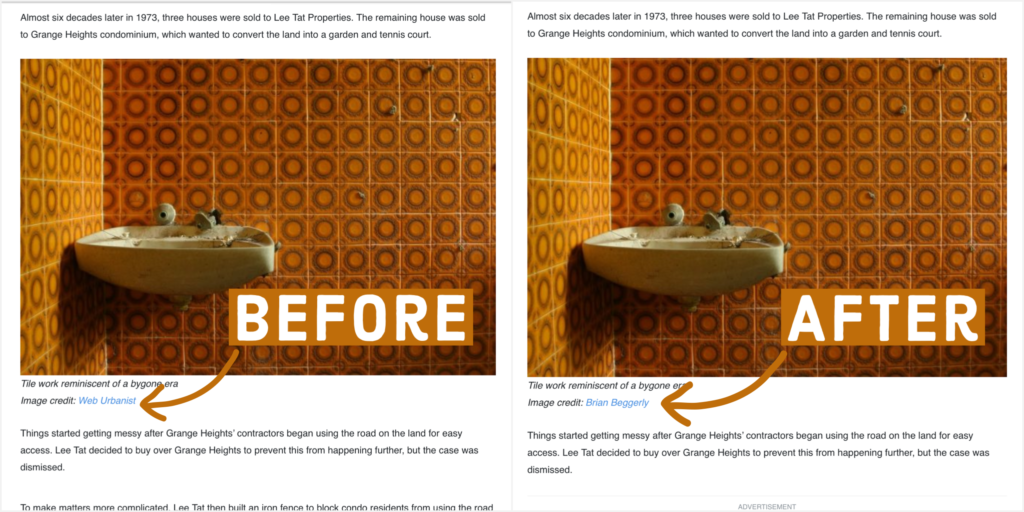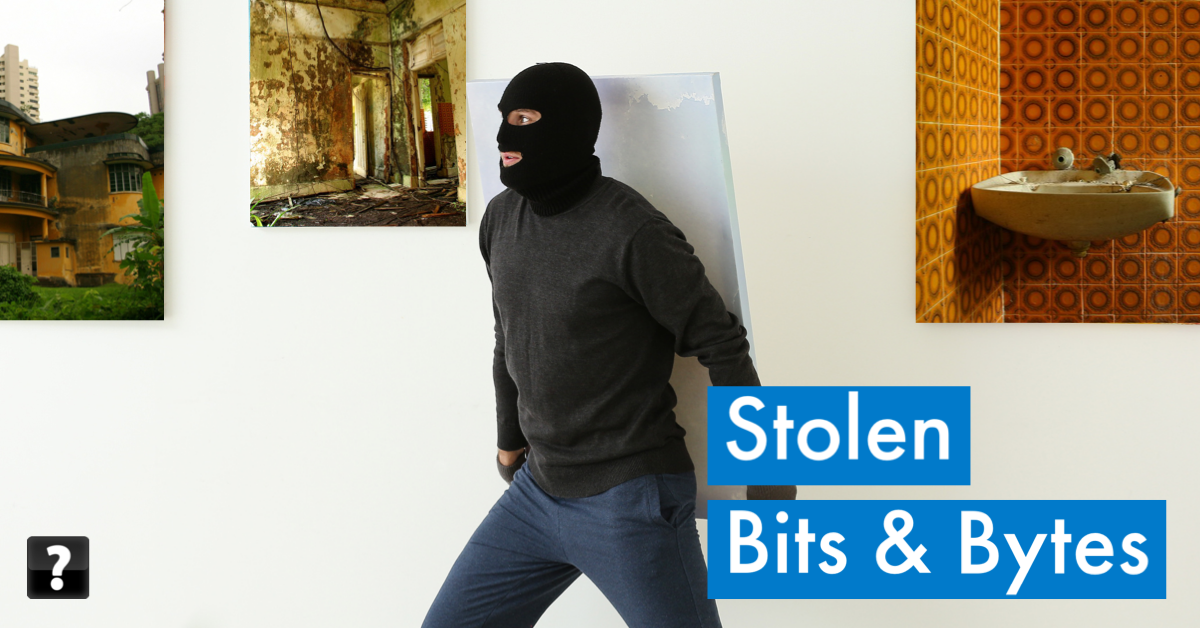Last week I found a few of my photos being used on a local website [thesmartlocal.com]. Specifically photos of the vacant house at 25 Grange Road. I never actually posted the photos here on Confusion back when I took them in 2006. I was not overly happy with them. The subject was very cool but I don’t think I captured it as well as I wanted. Anyway, you can see the full photoset on Flickr, such that it is, only 12 photos:
It’s nice when others find my photos useful. A few small sites have used some of my photos before, even got published in a few books (here [confusion.cc] & here again [confusion.cc]), the craziest usage was when the Ford Museum purchased the rights to this photo [flickr.com] to hang somewhere in the museum. Always nice that someone finds my photos useful.
I release almost all of the public photos on my Flickr account under the Creative Commons Attribution License, so they are free for anyone to use including for commercial purposes. You don’t have to ask permission or let me know, sometimes people do email me via Flickr or post a comment on a photo they use, it’s nice because I can see the work. The license does requires that if you use a photo you provide an attribution, just my name (I tell people they are welcome to use “Brian Beggerly” or just “beggs”). Flickr terms require a link back to the Flickr page in addition.
In this particular case though the photos were not attributed to me, they were instead attributed to another web site. And on that site the photos are not attributed to anyone. It’s perfectly possible that someone took very similar photos to those that I took. But when I looked at the other page it contains five of the 12 photos from my photoset and there is no doubt left; they are identical, they are the same photo.
In any case, I reached out to the Smart Local site and let them know and they agreed and updated the attribution.

I emailed the site where the photos were posted originally but no response yet. To be fair the site is no longer updated (per a banner on the site when you contact them) so maybe no one is looking at the emails. And while it’s the site that I contacted it seems most of the articles were submitted by independent writers so maybe it’s the author who didn’t add the attribution? But even if the author should have provided the attributions, the site should also a have some sort of editorial process to check that authors are attributing third party works, because it’s the publishers who are going to get the notice when an attribution is missing or wrong.
I have not heard back from the site yet. I’m not linking to them here as I don’t want to drive traffic to the site. If they reply and update the attribution I’ll add a link.
While I think information “should be free”, in the sense that I oppose companies extending copyright forever and hiding behind armies of lawyers trying to prevent people from making derivative works and taking inspiration… I also think people should give credit to other creators and respect other creators decision to charge for, or get paid for, their works. A derivative or an homage is fine, though there is a fine line between inspiration and copying.
But credit should be given. People should have respect for the people who create, even if the creation is owned by some big, money driven, corporation. If you don’t want people stealing your work, don’t steal from others. I think this should be taught in school, to make sure everyone understands the laws and how to follow them or how to work to change them. Vote with your wallet, if the item is not worth the price being asked then don’t buy it, and don’t steal it, just don’t consume it. In a capitalist system voting with your wallet is the most effective thing you can do. And if you are able vote in election, if you disagree with the power corporations have over copyright and patents the only way to change that is to vote in politicians who will change the laws and empower regulators to enforce limits, to nominate and confirm judges who can hold the companies to account in the courts.
I am part of the Napster generation, I stole a lot of music, downloaded a lot of Warez. I don’t blame kids and college broke students for piracy, but I don’t support big corporations suing the individuals for outrageous amounts of money, I understand they want to protect their work and business but it’s the wrong message to me.
I do have an issue with adults continuing to steal long after they are old enough to know it’s wrong. When I started making a living producing work that could be stolen, computer code in my case, I came to understand that it is theft and it is wrong (even if, in my case, it was not a work that was likely to be stolen by people, I never wrote that type of software).
I deleted so much music… Today, I don’t produce anything in my career that would be pirated but I release the works I create as part of my hobby, my photographs, so that others can use it. They can use it even if I don’t like what they make from it or how they use it. Creative Commons [creativecommons.org] tried to make this simple in the digital world with their licenses (they are 20 this year! So go and vote with your wallet, donate a few dollars). Flickr is a great source of Commons licensed works that you can use and makes it easy for it’s members to choose a CC license. But it still requires people to understand that you should respect others work.
We live in a complicated world, educate yourself and think about your actions. It does not take much effort to find a way to get others work for free, but is that how you would want others to treat a work your created? More power to you if you choose to release your work for others for free, but if you choose to charge for it or get paid by making something for someone else do you want others to steal it?
Ok, enough. It’s a complicated subject. In summary, if you are going to use someone else’s work, have some respect and learn the rules of the game, follow them. Don’t steal. Treat others works the way you want your works treated.



